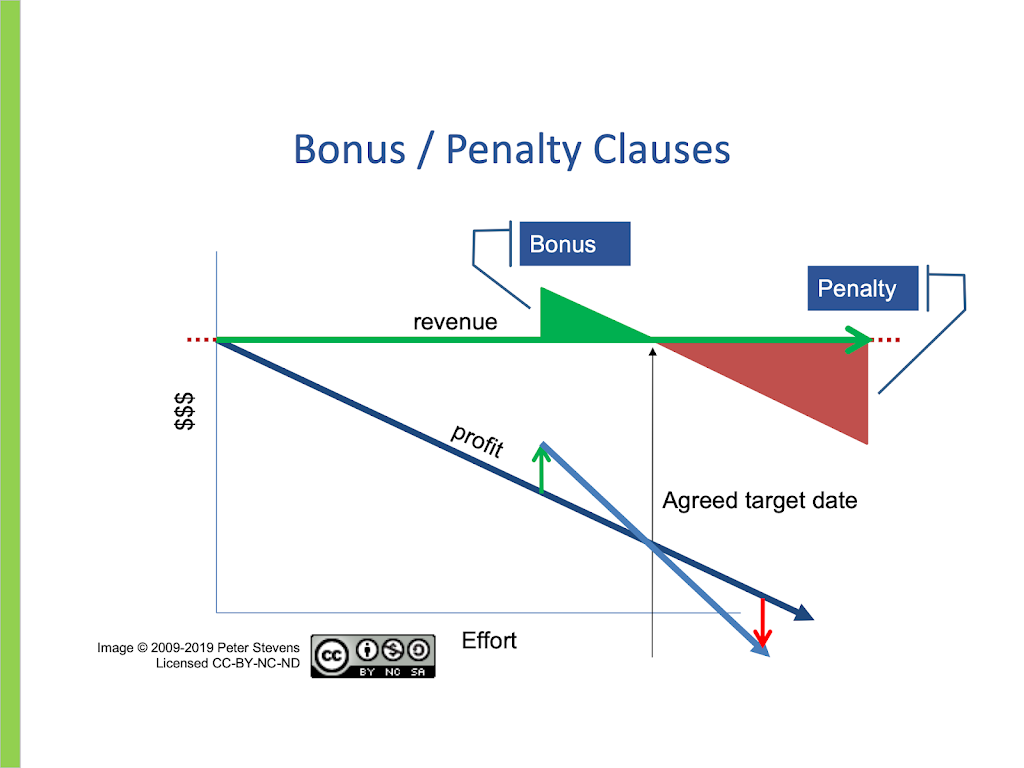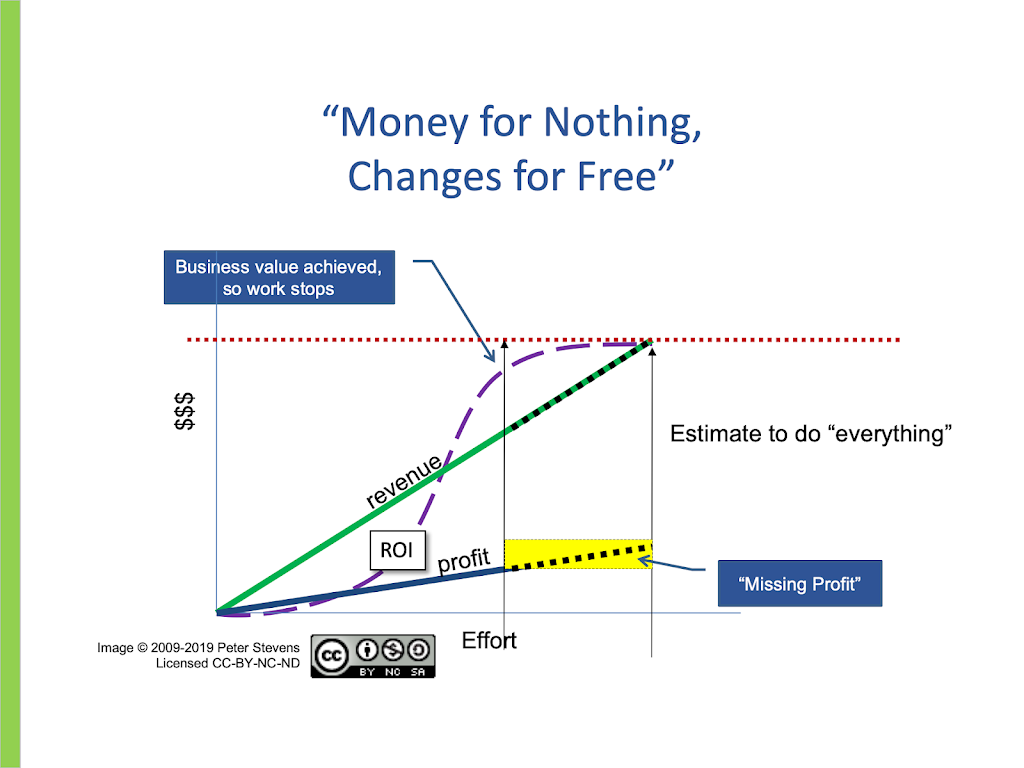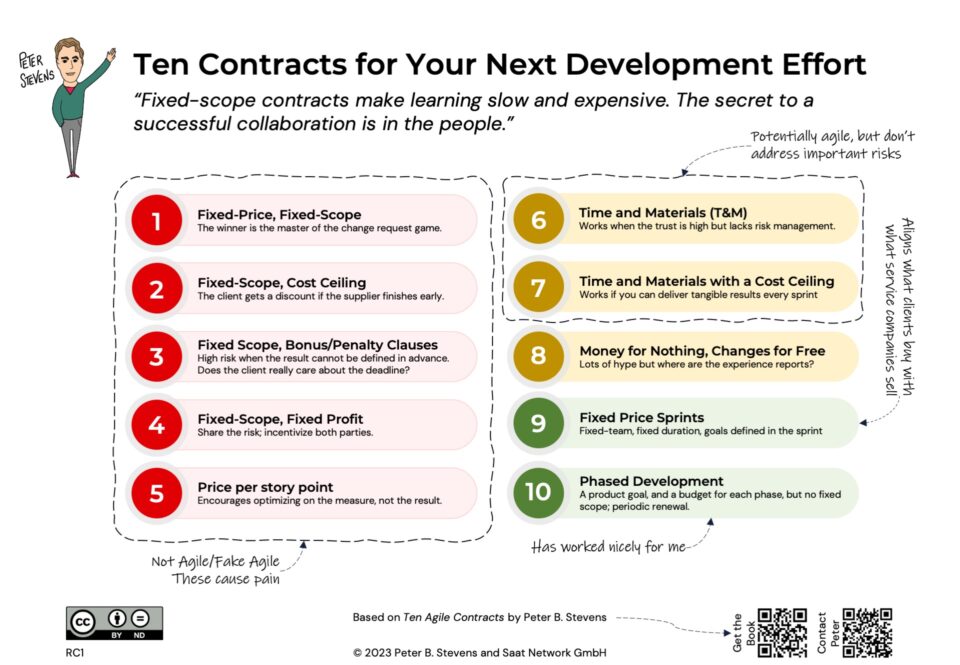
Bonus and Penalty Clauses
13-06-2019
Joint Ventures
17-06-2019A key advantage of Scrum projects is that at least once per sprint you have something that could be shipped and no work in progress. You can change direction every sprint, and you can reevaluate whether the project is a good investment or if your money could be better spent elsewhere. Abrupt cancellation is risky for the supplier.
While the concept of an early-exit penalty is not new, Jeff Sutherland gave it a unique allure with his allusion to the Dire Straits hit.
Desired Benefit
Incentivize both customers and suppliers to focus on functionality that provides genuine value.
Structure
This works with Agile software projects because there is little or no work in progress. After each Sprint, functionality is either complete or not started. Work is basically on a Time and Materials basis with a cost target, often with the intention that the project should not use up the entire project budget.
After a certain amount of functionality has been delivered, the customer may realize that enough business value has been realized and that further development is not necessary. At this time they can, therefore cancel the project, in which case a cancellation fee equal to the remaining profit is due (“Money for nothing”). Or the customer can apply the resources to something else that will bring them more value (“Changes for free”).
Scope
Can be changed. Planned but unimplemented features can be replaced with other backlog items of the same size. Additional features cost extra.
Decision-Making
Encouraged within the Scrum team. Emphasizes the Product Owner’s focus on maximizing Return on Investment, i.e. not wasting money on features that bring little value.
Risk
Shared. Both parties have an interest in completing the project early. The customer has lower costs; the supplier has a higher margin. This only works if the supplier really can deliver working functionality every sprint.
Tip
If the budget is exceeded, the rules of T&M, Fixed Profit or Cost Ceiling contracts can be applied. The Fixed Profit approach is more consistent with the goal of fostering a cooperative relationship.






